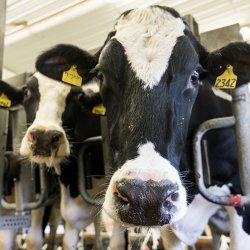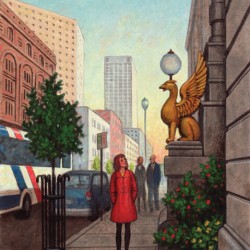Reimagining the Future
UW–Madison is turning to alumni and friends to help preserve transformational research.

The partnership between the federal government and our nation’s top institutions has fueled discovery, innovation, and economic vitality. Althea Dotzour
Federal research cuts continue to represent an existential threat to the university. For nearly eight decades, the partnership between the federal government and our nation’s top institutions has fueled discovery, innovation, and economic vitality. Today, that partnership is under extraordinary strain. Researchers are facing the sudden loss of grants, shifts in funding priorities, and legal uncertainties. Many international students and scholars are also grappling with a loss of support that has a significant impact on research programs. These changes jeopardize the university’s ability to pursue breakthroughs and remain internationally competitive.
In On Wisconsin’s winter issue, you’ll get an idea of what’s at stake in “How to Win a Nobel Prize,” which profiles Nobel-winning alumni and faculty. The most recent alum to win the prize is William Campbell MS’54, PhD’57, honored in 2015 for developing ivermectin, now one of the world’s most common drugs. It kills parasites in animals and prevents river blindness in humans.
Another quartet of Nobel-winning alumni supercharged the digital revolution. John Van Vleck 1920; Alan MacDiarmid MS’52, PhD’53; Jack St. Clair Kilby MS’50; and John Bardeen ’28, MS’29 laid the foundation for many of the electronic devices that we rely on today, including our phones.
From the UW faculty, Nobel winners Howard Temin and Har Gobind Khorana helped us to determine the cause of AIDS and to crack the genetic code, respectively.
It’s important to make sure that this kind of life-changing research does not fall victim to a lack of funding. It’s hard to know exactly how many programs, faculty, and students are being directly affected by current cuts, because federal directives are changing frequently. But you’ll learn about one example in “Hollywood in the Heartland,” which explores the globally acclaimed Wisconsin Center for Film and Theater Research.
You’ll also learn about how alumni and friends can fill the gap by making a gift to two new funds that will provide emergency support (see “Help Preserve UW Research”). These funds are designed to support graduate students and programs subject to cuts. Graduate students need to quickly find new sources of financial support so that they don’t have to leave campus or pause their programs. For research projects that have been frozen or canceled, interim funds provide a critical grace period to allow researchers to pursue other grants or to shift the focus of their work.
With these funds, the university will be able to provide crucial support to graduate students now and into the future, as well as continuing to advance transformative research that is making an impact on our world.
Who knows — this type of assistance could even lead to the next UW–Madison Nobel Prize winner.
Published in the Winter 2025 issue



Comments
No comments posted yet.